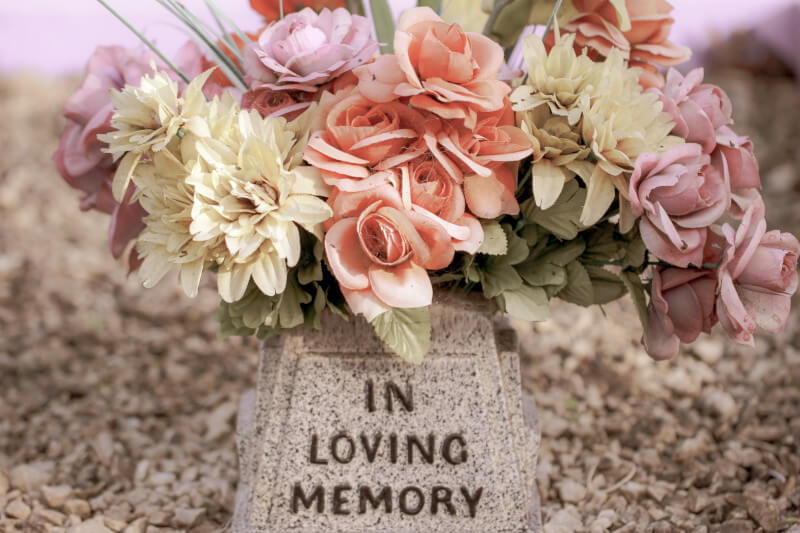Counselling for loss can help those who are having a hard time coping learn healthy ways to express their feelings without letting them consume them. Your therapist may suggest you start a notebook to write down your thoughts and feelings. Sharing your grief with other people who have had similar losses in therapy, either individually or in a group, might help you realise that you will recover from this.
Refusing to acknowledge the loss can start a downhill cycle that may result in substance abuse or other unhealthy coping mechanisms. After completing a rehabilitation program, grief counselling can help you healthily deal with your emotions, decreasing the likelihood of relapse.
Positive Effects of Grief Therapy
People who are having a hard time coping with the death of a loved one can benefit from grief counselling. It aims to facilitate the emotional healing process following the loss of a loved one or the dissolution of a romantic attachment. Counselling for grief can also help people begin to find serenity in the aftermath of profound loss and adjust to life without a loved one.
Counselling for Loss Can Help in Many Ways
Being Acknowledged and Given the Green Light to Recover
It’s normal to feel down after losing a loved one or being abandoned. Other people may try to brush off your sadness or encourage you to simply embrace
the loss and go on because they care about you but it hurts them to see you hurt. Great idea, except it, won’t help unless you also address your emotions. The final step in the healing process is acceptance, which follows denial, anger, negotiation, and despair. Counselling for grief allows you to focus on yourself and your recovery.
Making a Fresh Connection
Grief counselling teaches you how to rebuild your relationship with the one you lost. Your therapist will help you recall the positive aspects of your relationship with the deceased. Concurrently, you can work through negative emotions associated with past events, like sadness, resentment, and guilt. You could even feel guilty that you were spared while someone else perished. Keep in mind that these are the only feelings you need to work through.
Monitoring Your Development
A therapist specialising in bereavement support can advise you on how to best keep track of your healing journey. As an alternative, they may ask you to think back to the first month or week of therapy to recognise how far you’ve come.
A Place Where You Can Open Up and Be Heard
Active listening without passing judgment is a core skill taught to therapists. That implies it’s their responsibility to make you feel safe enough to share how you feel without fear of what others will think. The support group can be there to reassure you that your emotions are natural and healthy.
Methods of Dealing

There is no greater necessity than employing good coping techniques when experiencing a trying period of life, such as the grieving process. You can get assistance from a therapist in finding methods like these that work for you specifically.
To Be Allowed to Concentrate on Oneself
If your loss affects others, such as members of your family, you may find yourself taking on a caregiving role as you support them. It’s also possible that you’re too preoccupied with practical matters to permit yourself to grieve, or that you’re trying to bury a sense of guilt you have about the way you’re feeling. You can feel free to express your feelings and thoughts without fear of criticism or judgment when you discuss your coping strategies in a private therapy session.
Take Your Time Getting Better
Again, with individual treatment, everything is focused on you and your needs. That means you don’t have to worry about being hurried or held back by the way other people are processing their grief and can instead focus on healing in your own time and in your way.
Adapt Yourself to the Real World
When people are sad, it’s usually because they’ve lost something or someone very important to them. Getting over a loss isn’t easy and may even feel like an insult. This kind of thinking might cause frustration. Loss often necessitates a reorganisation of one’s life, and grief counselling can be a great aid in making those transitions.
Make Sure You Stay in Touch!
Although it’s vital to accept the loss and readjust to life without the deceased, it’s equally crucial to keep some ties to them. For example, after grieving the loss of a loved one, it might be beneficial to recall the joy that person brought into your life rather than dwelling on the anguish of their absence. Find out how improving digital literacy can help with this.
Elucidates the Grief Experience for the Bereaved
A person can begin the healing process by better accessing their thoughts and feelings after they have an understanding of the phases of sorrow and loss. A professional counsellor specialising in grief can explain it to their patients.
It’s Possible to Experience Loss in a Variety of Ways
There is no “correct” way to grieve; those experiencing loss may feel they are failing at it because they aren’t sad enough or because they haven’t moved on in their mourning soon enough. Patients benefit from counselling because it reinforces this truth and helps them understand that their own experience is not typical.
An Essential Element of the Process of Grieving
is providing a safe space for people to talk about their memories of a lost loved one without fear of repercussions. Grieving individuals often find great solace and consolation in the supportive environment of counselling, where they are free to openly discuss their feelings about the death and pay tribute to the departed.
Educates the Bereaved That Any Loss, No Matter How Small, Can Bring Unimaginable Pain
Losing a loved one is the most common cause of grief, but other losses, such as a pet, a marriage, a home, or a fatal diagnosis, can also cause profound sadness. Therapy can help people allow themselves to grieve without seeing themselves as weak or self-centered.

You can feel tense towards the end of the day because you had a challenging…

An Introduction To Mindfulness Experience a transformative shift in your daily life with our online…

Self-compassion is a vital element in addiction recovery, offering a approach to healing and personal…

Introducing the Clarity of Purpose Mentorship. 💡 Want to know the secret behind achieving at…
Grief and Addiction
Because of the emotional upheaval and intense feelings that come along with the loss of a loved one, individuals who are going through grief may be more prone to developing an addiction. Individuals who are going through the process of grieving may find themselves unable to cope with the intense feelings they are experiencing, which may lead them to look for solace in behaviors or substances that are addictive. This method of self-medication may offer momentary relief from the emotional anguish, but it will stymie the healing process and put the individual at risk for long-term addiction problems. In addition, the social isolation that frequently follows the loss of a loved one is another factor that may play a role in the development of addictive tendencies. These individuals may turn to addictive behaviors in order to find companionship or as a means of escape. Addiction can be a form of distraction or a way for people to fill the void that is left by their loss for some people when they experience grief because it causes them to feel as though they have lost their identity and their purpose in life. However, relying on addiction only serves to reinforce the impression that one’s life is lacking meaning and slows down the process of re-discovering one’s identity and sense of purpose. The importance of creating a safe and supportive environment as a crucial aspect of addiction treatment and long-term recovery. Gain insights and guidance on how and where to start your journey of addiction treatment and recovery.
Leads Individuals Back to Their Own Self-Care
The mental, emotional, and physiological energy reserves of a grieving person might be depleted. Self-care measures, such as mindfulness practices and basic recommendations like exercise and getting sufficient sleep, might be recommended by a counsellor to help patients manage and heal.
Consider Your Self-Interest: What Should You Do?
When someone dies, their funeral is a private event. How much help you need to overcome grief and find closure depends on the gravity of the loss, the strength of your social network, and your ability to deal with stress. Understanding that your feelings of loss and sadness are completely natural is crucial. If you find that time and more traditional forms of assistance aren’t cutting it, visit Change’s page to inform yourself further about their grief counselling offerings to see if this is the next step for you.
